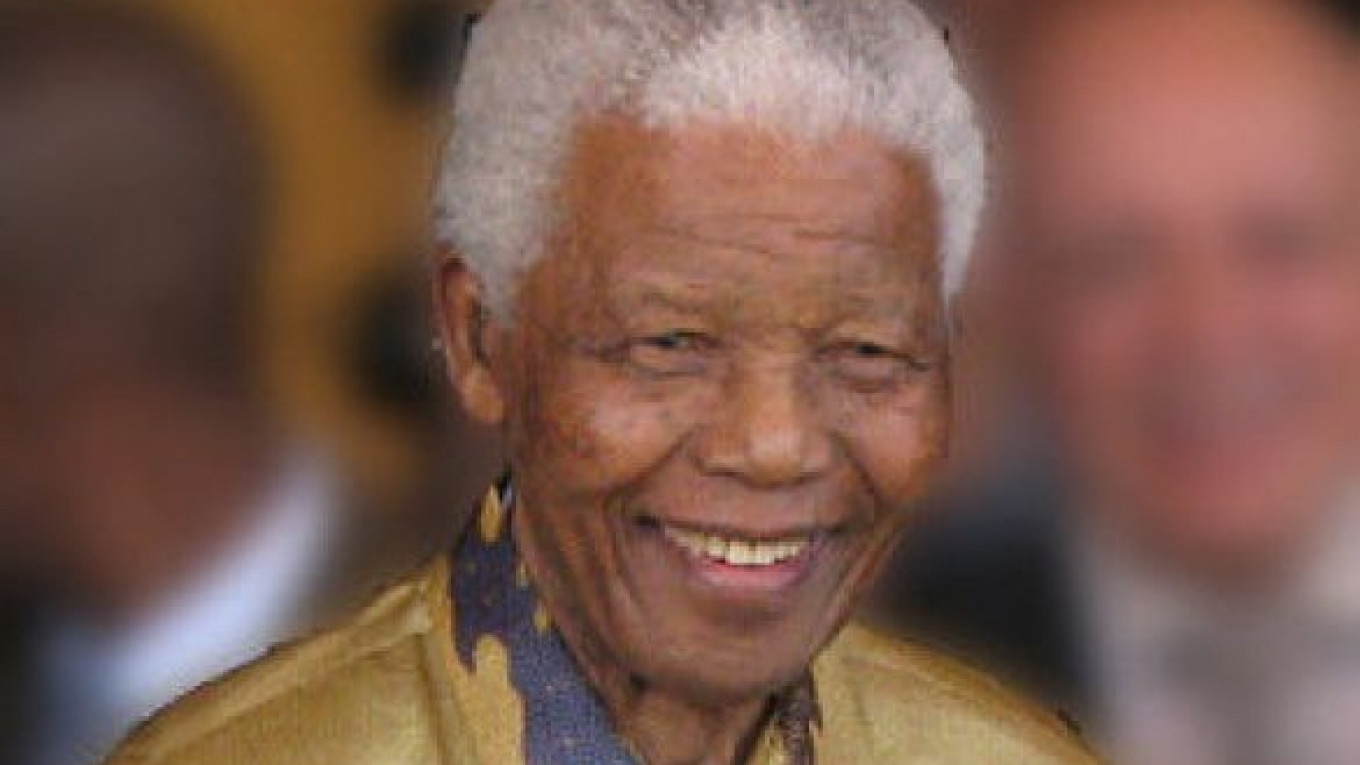Current and former heads of state, politicians, and social activists from around the world have expressed their sympathy and regret at the loss of Nelson Mandela, South Africa's first black president and leader of the anti-apartheid movement, who died Thursday aged 95.
President Vladimir Putin sent a telegraph to South African President Jacob Zuma on Friday morning, expressing condolences and admiration at Mandela's strength of character.
“A brave man and a wise leader, Nelson Mandela rightfully earned great respect at home and high prestige abroad,” Putin wrote. “The memory of Nelson Mandela will forever remain in the hearts of millions of Russians.”
Former Soviet leader Mikhail Gorbachev also paid tribute to Mandela, one of the world's most esteemed leaders.
"I think there will be people who will live through great difficulties and come out on the road of freedom on a global scale, and these people will remember Mandela,” Gorbachev said. “I express my condolences to those for whom he gave his life — his country, friends and fellow freedom fighters. The memory of Mandela will remain with all of us, and it will forever remain in history.”
Current Russian politicians have also expressed their admiration for Mandela's courageous actions and determination.
"Mandela was the last politician on earth to reach his goals through the non-violent protest of a free individual, by the calm courage of a political prisoner," said Mikhail Margelov, special presidential envoy for cooperation with Africa, Interfax reported. "His name belongs with that of Mahatma Gandhi, Jawaharlal Nehru, Gamal Abdel Nasser and other great leaders of 20th century national liberation movements."
South Africa, Great Britain and France announced that their flags will be flown at half mast in tribute to Mandela's exceptional life.
In 1944, Mandela joined the anti-apartheid Youth League of the African National Congress (ANC).
The South African government banned the ANC in 1960, by which time Mandela had become a recognized leader in the organization. Four years later, Mandela was charged with conspiring to overthrow the government and sentenced to life in prison.
In 1985, then-South African President Pieter Botha offered to release Mandela if he agreed to abandon his political activities. Mandela declined the offer.
The man affectionately referred to as “Tata” (Father) was released in 1990 after 27 years of imprisonment, following a sustained international lobbying campaign. That year, Mandela was the last person to ever be awarded the Soviet Union's International Lenin Peace Prize.
In 1993, Mandela and Frederik Willem de Klerk, South African president at the time, were awarded the Nobel Peace Prize for their efforts to end apartheid. Mandela was elected president the following year and led his country until 1999.
In April 1999, Mandela traveled to Moscow to sign cooperation agreements with Russia with then-President Boris Yeltsin, including the Declaration on Principles of Friendly Relations and Partnership between the countries.
President Vladimir Putin congratulated Nelson Mandela on his 95th birthday in July, wishing him “good health, happiness and well-being.” In his letter, Putin highlighted the role Mandela had played in the “the development of friendly relations between Russia and South Africa, which today have become a strategic partnership” in the BRICS group.
Mandela was hospitalized for a lung infection this summer after his condition rapidly deteriorated. In September, the former South African president was discharged from hospital to end his days at his Johannesburg childhood home.
Contact the author at g.tetraultfarber@imedia.ru
A Message from The Moscow Times:
Dear readers,
We are facing unprecedented challenges. Russia's Prosecutor General's Office has designated The Moscow Times as an "undesirable" organization, criminalizing our work and putting our staff at risk of prosecution. This follows our earlier unjust labeling as a "foreign agent."
These actions are direct attempts to silence independent journalism in Russia. The authorities claim our work "discredits the decisions of the Russian leadership." We see things differently: we strive to provide accurate, unbiased reporting on Russia.
We, the journalists of The Moscow Times, refuse to be silenced. But to continue our work, we need your help.
Your support, no matter how small, makes a world of difference. If you can, please support us monthly starting from just $2. It's quick to set up, and every contribution makes a significant impact.
By supporting The Moscow Times, you're defending open, independent journalism in the face of repression. Thank you for standing with us.
Remind me later.






